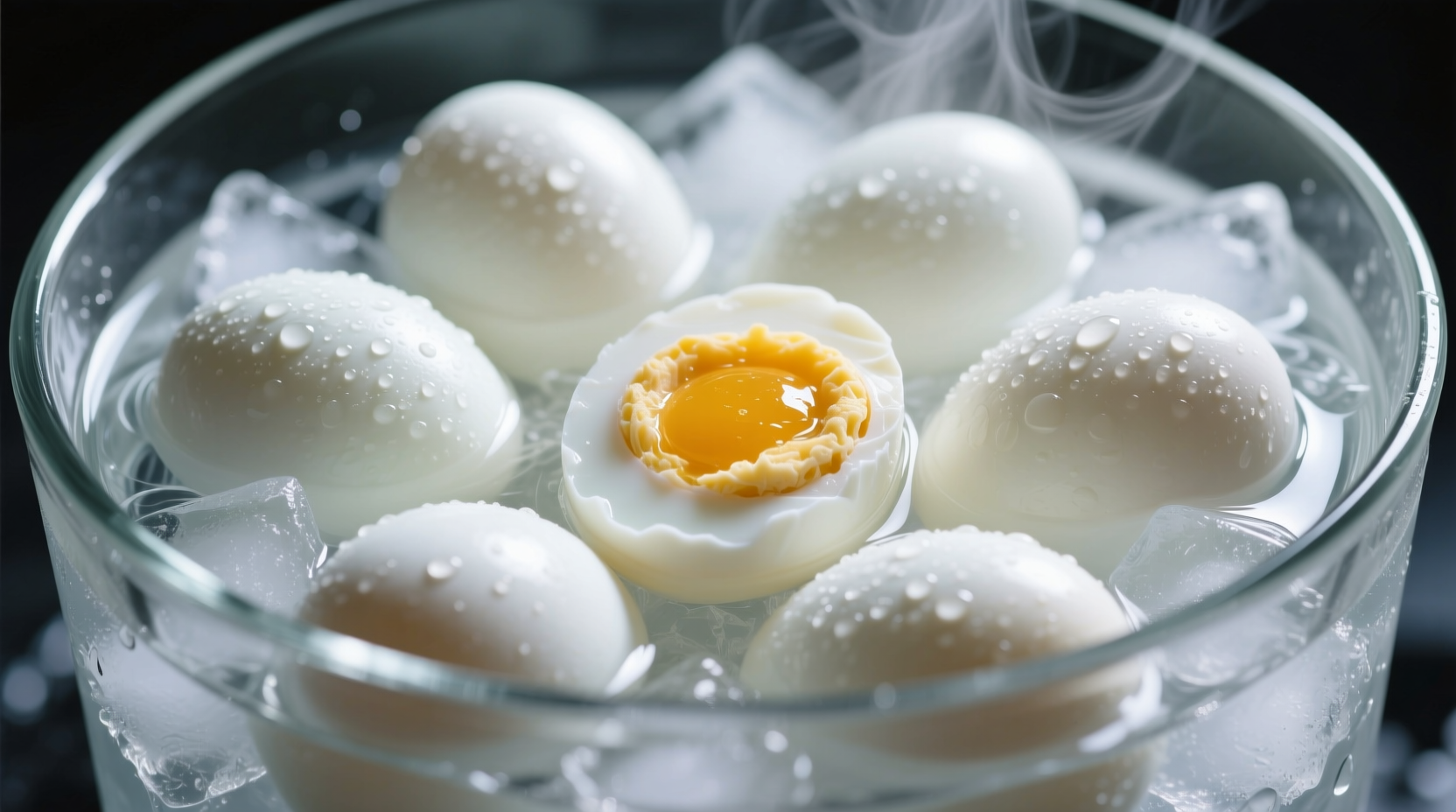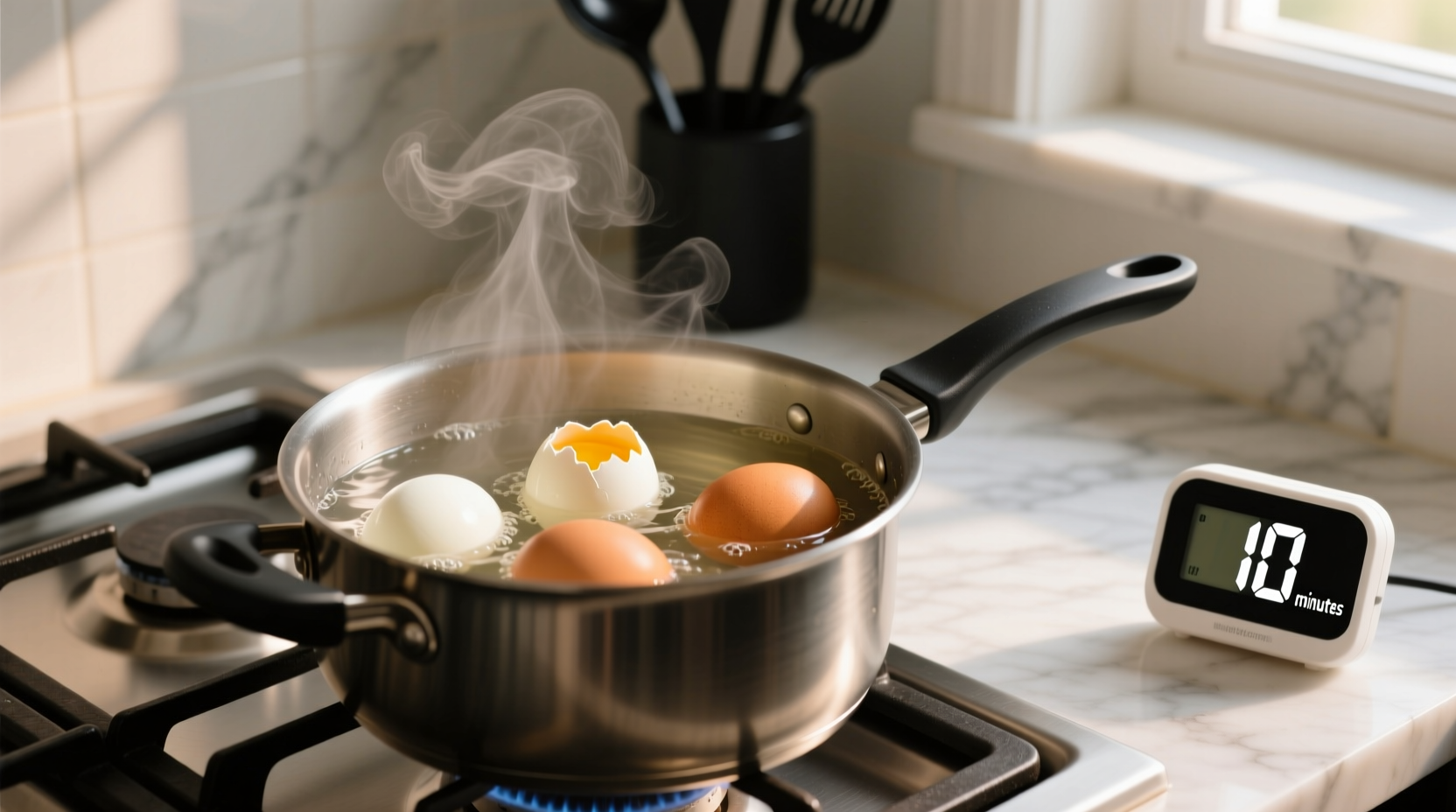Get Perfect Hard Boiled Eggs Every Time: The Complete Timing Guide
Getting hard boiled eggs right depends on precise timing and proper technique. Whether you're meal prepping, making deviled eggs, or just want a protein-packed snack, understanding the exact cooking duration prevents rubbery whites and unappetizing green rings around the yolk.
Why Timing Matters for Hard Boiled Eggs
Egg proteins begin to coagulate at specific temperatures. The white sets at 180°F (82°C) while the yolk begins to firm at 158°F (70°C). Boiling too long causes over-coagulation, leading to that unsightly green-gray ring around the yolk caused by iron and sulfur compounds reacting. The USDA Food Safety and Inspection Service confirms that proper timing ensures both food safety and optimal texture.
| Egg Doneness | Boiling Time After Water Reaches Boil | Yolk Texture | Best For |
|---|---|---|---|
| Soft Boiled | 4-6 minutes | Liquid center | Toast soldiers, ramen topping |
| Medium Boiled | 7-9 minutes | Creamy but set | Egg salad, pickled eggs |
| Hard Boiled | 10-12 minutes | Fully set, no green ring | Snacking, deviled eggs, meal prep |
| Overcooked | 15+ minutes | Dry, green-gray ring | Avoid this result |
The Step-by-Step Hard Boiled Egg Method
Equipment You'll Need
- Medium saucepan with lid
- Egg slotted spoon
- Bowl of ice water
- Timer
Perfect Hard Boiled Egg Technique
- Start with room temperature eggs - Take eggs out of refrigerator 20-30 minutes before cooking to prevent cracking. The Egg Industry Center recommends this temperature adjustment for more consistent results.
- Arrange eggs in single layer - Place eggs in saucepan without crowding.
- Cover with cold water - Add enough water to cover eggs by 1 inch (2.5 cm).
- Bring to rolling boil - Heat on medium-high until water reaches a full boil.
- Set timer immediately - Once boiling, reduce heat to maintain a gentle simmer and start your 10-12 minute timer.
- Ice bath shock - When timer ends, immediately transfer eggs to ice water bath for 15 minutes to stop cooking.

Altitude Adjustments and Special Considerations
At higher elevations, water boils at lower temperatures, requiring longer cooking times. For every 5,000 feet (1,500 meters) above sea level, add 1-2 minutes to your cooking time. The USDA National Agricultural Library confirms that high-altitude cooking requires these adjustments to ensure proper protein coagulation.
Troubleshooting Common Hard Boiled Egg Problems
Eggs Cracking During Cooking
Add 1 teaspoon of vinegar or salt to the water before heating. The vinegar helps coagulate egg white proteins faster if a crack occurs, minimizing leakage. Starting with room temperature eggs also reduces thermal shock.
Green Ring Around Yolk
This occurs when eggs cook too long or cool too slowly. The iron in the yolk reacts with sulfur in the white. Prevent it by strictly following the 10-12 minute timing and using the immediate ice bath method. As noted by food science experts at Cooking for Engineers, this reaction begins at temperatures above 170°F (77°C) sustained for more than 5 minutes.
Difficulty Peeling
Fresher eggs are harder to peel because their albumen has a lower pH. For easier peeling, use eggs that are 7-10 days old. After the ice bath, gently crack the egg all over and peel underwater - the water helps separate the membrane from the egg white.
Storing Your Hard Boiled Eggs
Store unpeeled hard boiled eggs in a covered container in the refrigerator for up to one week. The USDA Food Safety and Inspection Service recommends keeping hard boiled eggs refrigerated at 40°F (4°C) or below. Never store hard boiled eggs at room temperature for more than two hours.
Why Freshness Affects Cooking Time
Fresher eggs have more acidic whites that bond tightly to the shell membrane, making them harder to peel. As eggs age, carbon dioxide escapes through the shell, raising the pH and creating a small air pocket between the shell and membrane. This natural aging process makes older eggs easier to peel but doesn't significantly affect cooking time requirements for proper doneness.











 浙公网安备
33010002000092号
浙公网安备
33010002000092号 浙B2-20120091-4
浙B2-20120091-4